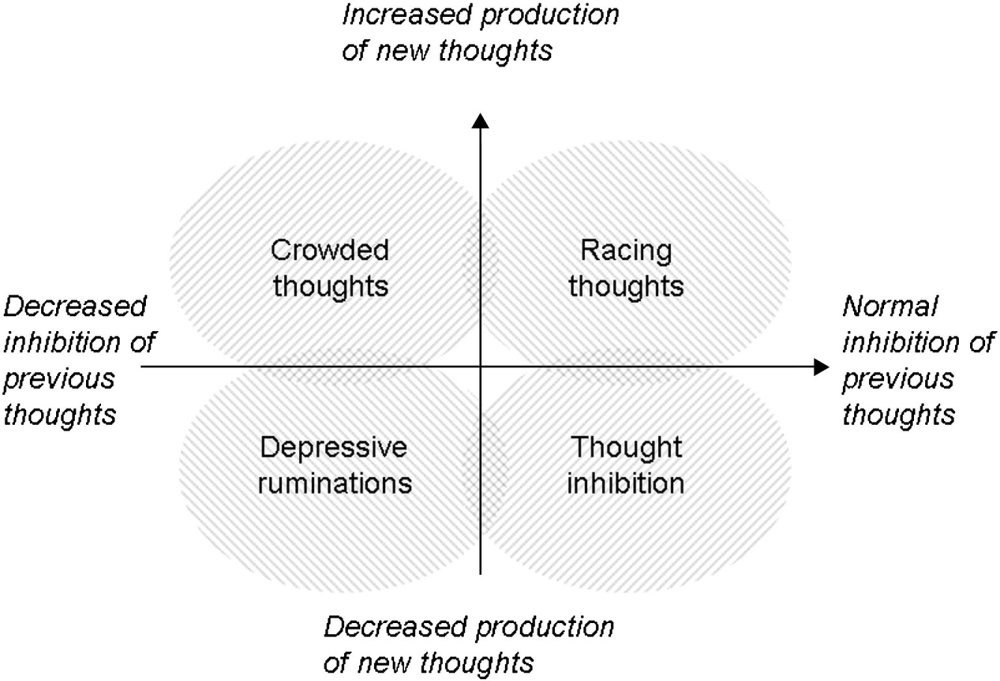Phenomenology of racing and crowded thoughts in mood disorders
"Crowded thoughts may be conceptualized as a pathological thought process characterized by the occurrence of too many thoughts that co-exist almost simultaneously in consciousness, and that give to the subject a sense of constant and unpleasant agitation in his/her own thinking."
Some excerpts from the article that relate to OCD:
1. The paper mentions the concept of "fixed ideas" in relation to obsessive-compulsive and related disorders:
"Persisting thinking without any excess or deficit of production of new thoughts (close to the concept of fixed ideas in obsessive-compulsive and related disorders)."
2. There is a reference to a study that examined cognitive inflexibility during task-switching in individuals with obsessive-compulsive disorder:
Gu, B.M., Park, J.Y., Kang, D.H., Lee, S.J., Yoo, S.Y., Jo, H.J., Choi, C.H., Lee, J.M., Kwon, J.S., 2008. Neural correlates of cognitive inflexibility during task-switching in obsessive-compulsive disorder. Brain 131, 155–164 From Gu et al: "impaired task-switching ability in OCD patients might be associated with an imbalance in brain activation between dorsal and ventral frontal-striatal circuits."
3. Additionally, there is a mention of a study related to neuronal correlates of obsessions in the caudate nucleus:
Guehl, D., Benazzouz, A., Aouizerate, B., Cuny, E., Rotge, J.Y., Rougier, A., Tignol, J., Bioulac, B., Burbaud, P., 2008. Neuronal correlates of obsessions in the caudate nucleus. Biol. Psychiatry 63, 557–562
These excerpts highlight the focus on cognitive inflexibility, fixed ideas, and neuronal correlates in OCD as discussed in the article.
(This academic article is from 2010, with 51 citations since then.)

